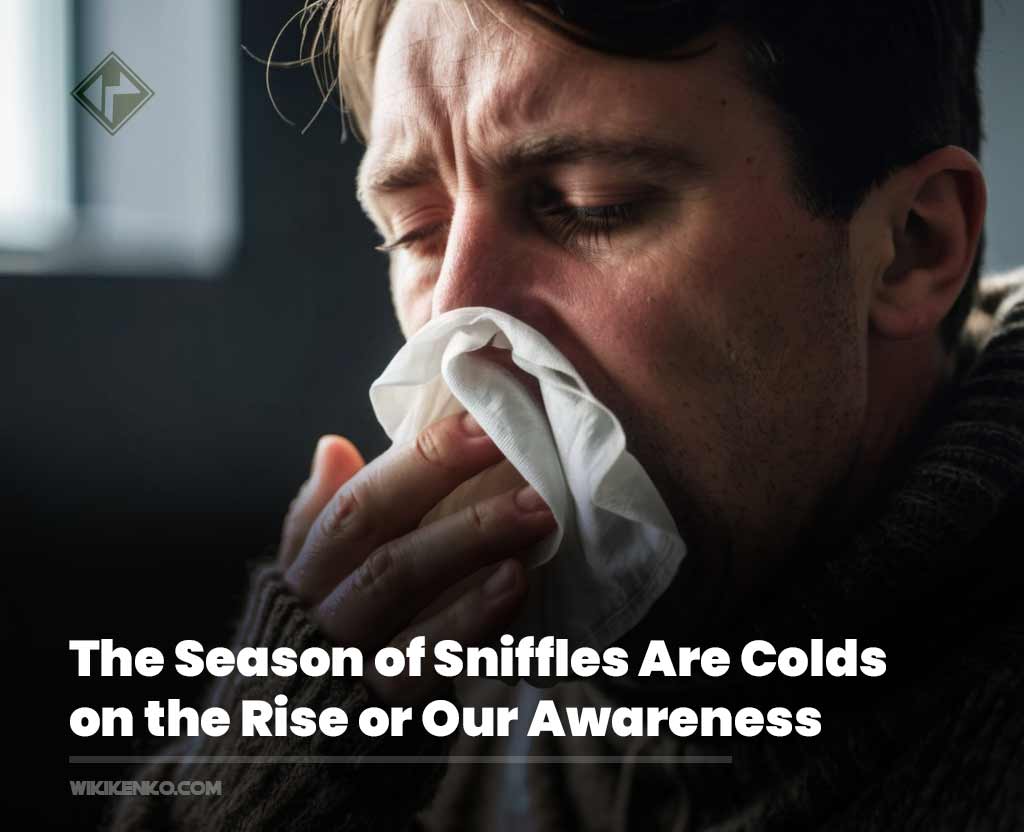The sensation of being caught in an endless spiral of infections seems to intensify after the pandemic. Still, epidemiologists assure us that respiratory viruses haven’t become more aggressive.
Seasonal Conversations
In Spain, many conversations revolve around the familiar, friend, or colleague dealing with a congested nose, cough, cold, or a combination of these symptoms. The notion that everyone falls ill come winter resurfaces like clockwork each year, driven by simple seasonal reasons.
Environmental Conditions
With the cold weather and lack of ventilation in enclosed spaces, viruses like the flu and COVID-19 find ideal conditions for transmission. The feeling of being trapped in a whirlwind of infections during this time of year has strengthened post-pandemic, where masks and social distancing did their part in protecting the population from the flu.
The Question of Impact
But, is it true that colds are hitting us harder and more frequently than before?
Expert Insights
Dr. Leovigildo Ginel, Secretary of the Respiratory Diseases Working Group of the Spanish Society of Primary Care Physicians (SEMERGEN), explains the normal increase in cases during this time. The immune system needs time to readjust after pandemic winters, where the flu, colds, and common colds practically disappeared in favor of COVID-19.
Current Trends
According to data from the Carlos III Health Institute, hospitalizations for flu and COVID-19 are on the rise, with fluctuations downward in hospitalizations for respiratory syncytial virus (RSV) infections. However, the cases do not yet surpass those of the previous winter, and experts exercise caution.
Immunity Debt
To the best of experts’ knowledge, respiratory viruses have not become more aggressive in recent years. Epidemiologist Dr. Toni Trilla from the Hospital Clínic de Barcelona sees a plausible cause in the so-called “immunity debt.”
Changing Dynamics
The discontinuation of containment measures like masks and social distancing exposes the population to viruses they were no longer accustomed to.
Competing Viruses
“When a virus, like SARS-CoV-2, circulates widely, it’s normal for others to stop circulating, known as ecological competition,” agrees Dr. Magda Campins, head of preventive medicine at Vall D’Hebron Hospital.
Immunity Outlook
Both natural immunity post-disease and vaccine-induced immunity have limited durations, as viruses frequently mutate. Dr. Campins insists on the importance of vaccination, considering that exposure to the circulating virus this year may not guarantee protection next year.
Vaccination Efforts
More than 1.7 million people, 60% of the population over 80 years old, have received the adapted vaccine against COVID-19 subvariants this season, according to the Ministry of Health. A notable addition is the first vaccination campaign for babies against RSV.
Evolving Viral Circulation
One aspect that has likely changed is the landscape of viral circulation, becoming more complex since the arrival of the coronavirus.
Relevant articles: Running with a Cold: Is It Safe?
Ongoing Competitions
“SARS-CoV-2 is just one more agent that has come to stay, competing with the circulation of other viruses at this time of year.” Simultaneous circulation of flu, SARS-CoV-2, and RSV may contribute to the perception of a higher number of respiratory illnesses in the population.
Increased Sensitivity
Paying more attention to respiratory symptoms is also a key factor in reinforcing this perception. Experts emphasize that post-pandemic, when even a slight cough was enough to raise alarms, the population has become more aware of the dangers of contagion.
Expert Perspectives
“We are all more sensitive. We notice the symptoms, and if we have COVID, we make sure not to visit grandparents,” says Salvador Peiró, director of the Research Area in Health Services at Fisabio.
Hospitalization Perspectives
Dr. Julián Domínguez, head of the Preventive Medicine Service at the Ceuta Hospital, acknowledges that with each new epidemic wave, we start with very few typical cases. As the numbers begin to rise, the subjective feeling that everyone is sick also increases.
Original source: This information was Initially covered by elpias and has been translated for our readers.




